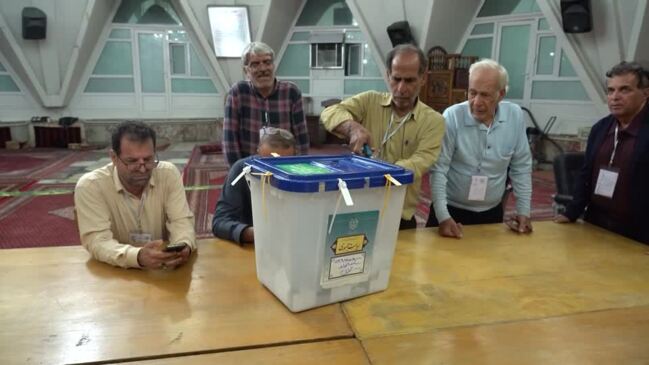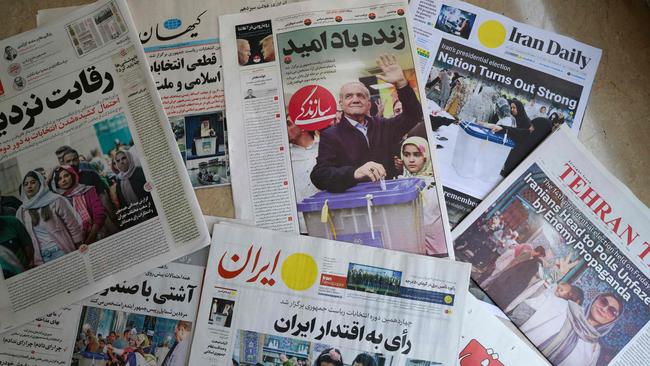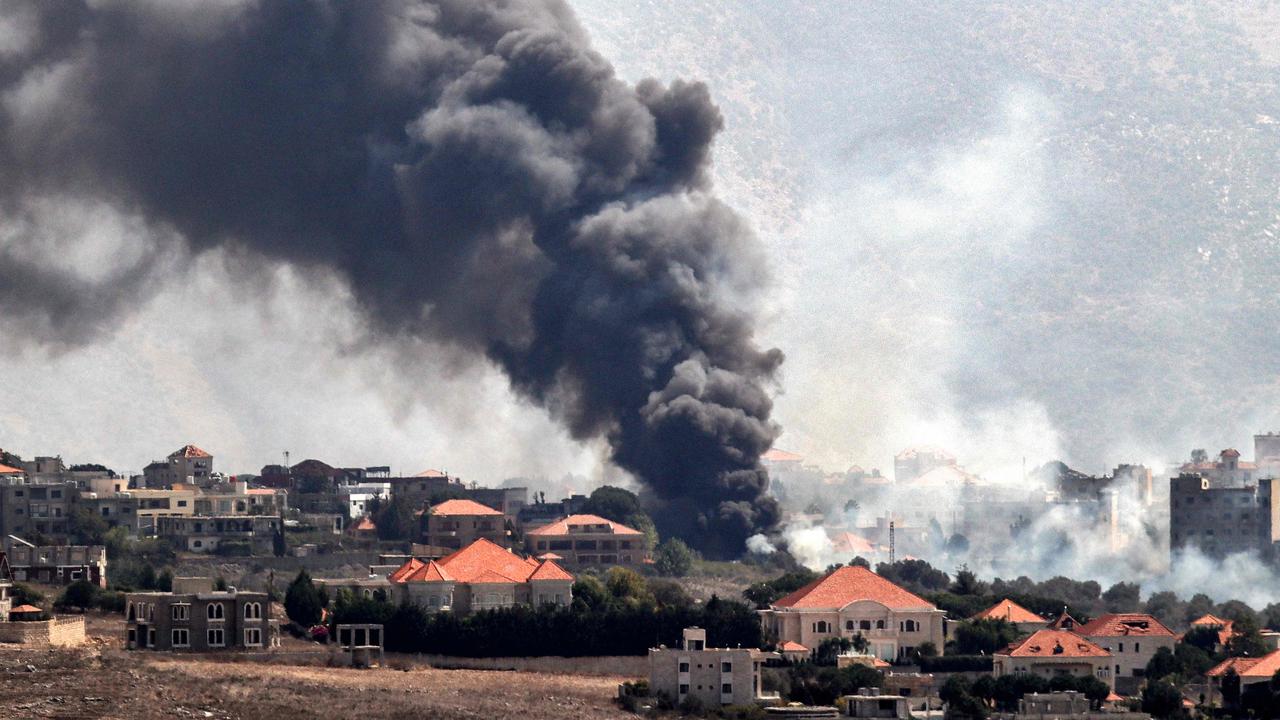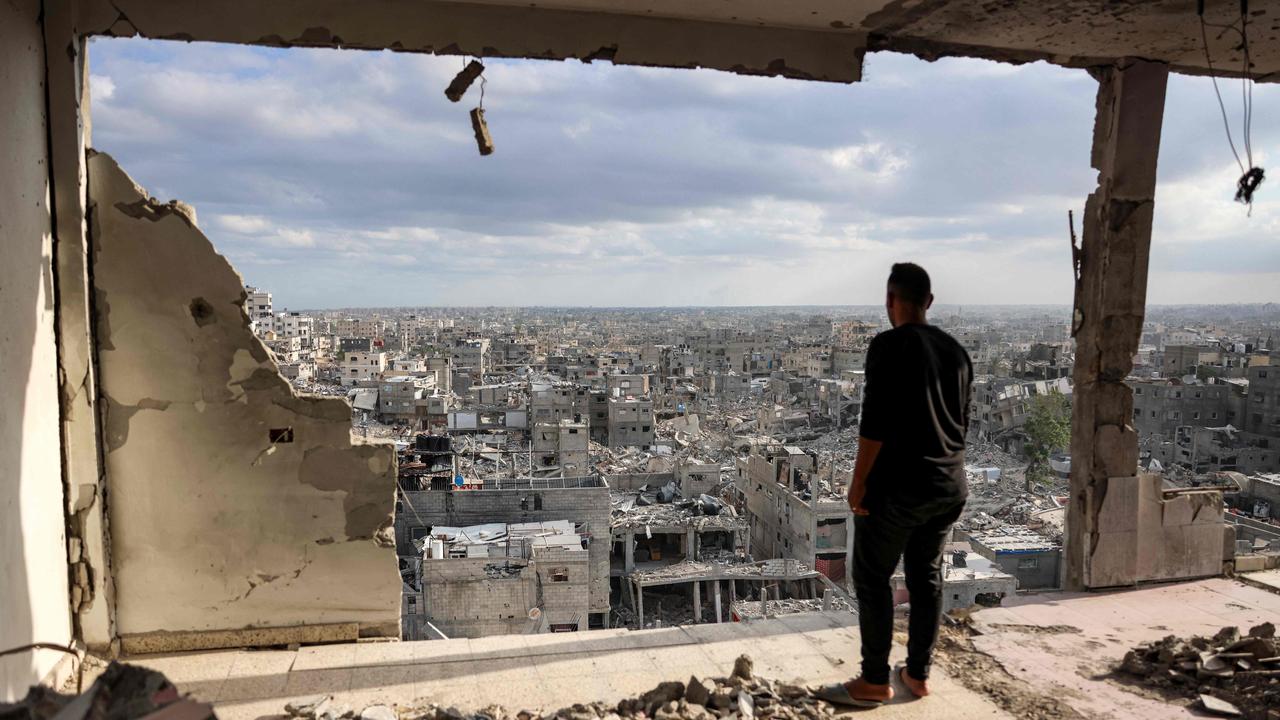Iran election goes to runoff, presenting choice between engagement or confrontation with West
Iranians will have the choice between a reformist presidential candidate who favours engagement with the West and a hard-liner after a vote that saw record low turnout.

Iranians will have the choice between a reformist presidential candidate who favors more engagement with the West and a hard-line adviser to Iran’s supreme leader who opposes compromise after a long day of voting that saw record low turnout for an Iranian presidential election.
In official results released Saturday, reformist candidate Masoud Pezeshkian drew 42% of the vote, against 39% for conservative Saeed Jalili, setting the stage for a final runoff on Friday after neither secured more than half the vote.
The election was sparked by the death of President Ebrahim Raisi in a helicopter crash last month. Raisi, a hard-line cleric serving his first term, was viewed as a contender to succeed Supreme Leader Ayatollah Ali Khamenei, who is 85 years old and in poor health. Though no one outside a small circle in Iran is privy to succession talks, Iran analysts said Raisi’s death removed a safe choice.

The ballot will be an informal referendum on the Iranian regime, two years after protests calling for its downfall rocked the streets and were put down violently. Raisi was elected in 2021 in the first Iranian presidential ballot in which fewer than 50% of voters participated, and polls show turnout could be even lower this time.
Still, many Iranians are unconvinced that it is worth voting for the narrow list of candidates Khamenei allows. Andia, a 37-year-old Tehran resident who joined the 2022 protests, said she wouldn’t vote because a popular moderate, Ali Larijani, was banned from participating.
“This election won’t make any difference to me,” she said.
After Khamenei voted on Friday morning, an event broadcast on state television, he pressed Iranians to cast their ballots, saying the country’s future depended on it. “To prove the Islamic Republic system’s honesty and validity, the people’s participation is a must and a necessity,” he said.
In the end, 40% of eligible voters turned out, according to results announced by the Iranian election authority. That was lower than the 48.8% who voted in the last presidential election and roughly even with the 41% who voted in March parliamentary elections.
Most polls suggested the campaign was dominated by three candidates: Pezeshkian, who favors resuming nuclear talks with Washington and other world powers to lift international sanctions in exchange for curbs on Tehran’s nuclear program; hard-liner Saeed Jalili, a Khamenei adviser who is opposed to compromise on Iran’s nuclear program and any relaxation of the regime’s compulsory veil for women; and the speaker of Iran’s Parliament, Mohammad Bagher Ghalibaf, known as a pragmatic conservative seeking a limited re-engagement with the West.
As reports came in of weak turnout during a hot day in Tehran, Pezeshkian’s supporters on social media tried to spur more voters to head to the polls, saying it was necessary to avert a first-round hard-liner victory. State television showed busy voting across the country.

The election is happening at a critical time for Iran. It is under heightened international scrutiny over its nuclear program, which it says is peaceful, and its military support to Russia in the war against Ukraine. It nearly went to war with Israel in April, when the two countries attacked each other on their soil for the first time.
And it is dealing with lingering frustrations among young people over the crippled economy and restrictions on freedom, which broke into the open in 2022 in mass protests after the death of a woman in police custody following her arrest for not wearing a proper headscarf.
Under the theocratic system established by founder Ayatollah Ruhollah Khomeini after the 1979 revolution, the president has much less power than the supreme leader, the de facto head of state who must be a senior cleric. The supreme leader has a final say on the country’s most critical matters, from political and social changes to its nuclear program.
The president can, however, steer the nation into a hawkish or flexible direction, and the presidency is seen as a steppingstone to becoming supreme leader; Khamenei was Iran’s president in the 1980s.
Jalili represents a faction known as “super revolutionaries,” a group that seeks a return to the firebrand spirit of the regime’s early days. Jalili has slammed the 2015 nuclear deal, saying it favored countries “that have the greatest hostility toward the Iranian people.” Pezeshkian, the only reformist among five approved conservatives, has suggested Iran was responsible for its economic woes -- later citing mismanagement and international sanctions tied to its nuclear program. “We are to blame,” he told state television on Monday.
Pezeshkian was allowed to run to ensure citizens disgruntled with the regime would turn up at the polls, Iran analysts said. Khamenei is concerned that most Iranians have simply stopped voting for his narrow list of candidates -- and the resulting loss of legitimacy.
“Khamenei and the core nucleus recognize a need for more competitive elections,” said Sina Toossi, an Iran expert at the Center for International Policy, a Washington think tank.
In a town hall meeting with reformist Pezeshkian, young Iranians said they had little hope for change.
“Your generation reached the conclusion it didn’t have a common language with the government and did a revolution,” one woman said in an exchange broadcast on state TV. “Our generation is reaching this level.”
Dow Jones





